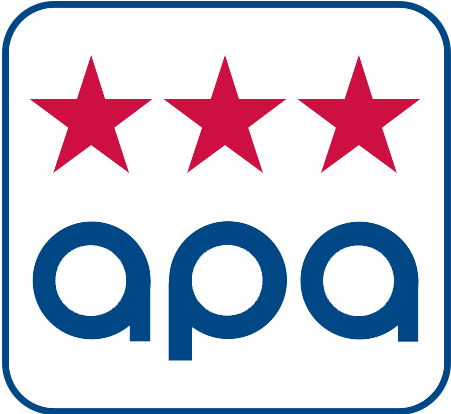
The family of Phil Edmonston announced his death in December at the age of 78, at his home in Panama after a battle with cancer. Phil had a long career as a consumer advocate on behalf of car owners. In 1969, he founded the Automobile Protection Association and was the author of the best-selling Lemon-Aid and Roulez-sans-vous-faire-rouler car guides for over four decades. An American from Florida by birth, Phil Edmonston married a Québécoise and fell in love with the Province of Quebec.
Phil either volunteered or worked briefly at a public interest group started by Ralph Nader in the 1960s.
It was during a visit to the Center for Auto Safety in Washington D.C. to visit his old coworkers, that Phil discovered an internal report from the Ford Motor Company provided by a whistleblower that showed their vehicles rusted sooner than the competition’s.The weakness was so serious that some Fords used in regions where roads were salted had to be taken off the road within five years. Phil told me that the staffers at the Center were too busy working on other defects and helping develop vehicle safety standards to devote resources to a rusting issue. Phil took a copy of the materials back to Canada where he had just started the Automobile Protection Association (APA), an advocacy group for car owners. Initially it was run out of a room at the back of his first wife’s beauty parlour.
Edmonston started the Rusty Ford Owners campaign which garnered national exposure for vehicle owners with demonstrations and news conferences. Eventually, the automakers and the federal government developed a national corrosion code to offer meaningful warranties of five or six years against vehicle rusting; the Code is still delivering results to this day. Following on the Nader Group model, the APA took no sponsorship money from the carmakers and relied on a cadre of highly motivated/low-paid university graduates. The association took car importers to court and was instrumental in convincing them to abandon the practice of “redating” unsold inventory of the previous year’s vehicles for sale as current model vehicles. As head of the APA, Edmonston exposed vehicle defects that lead to several safety recalls and warranty extensions. Consumers assisted by the APA won hundreds of small claims decisions with the help of mechanics recommended by the association.
In the 1970s, the APA’s service agreement with auto repair shops it recommended required them to provide APA members written estimates and obtain their consent in writing before a repair was undertaken, as well as a three-month warranty. Today this seems normal; at the time it was a radical change in the way most repair shops operated. The APA’s repair shop agreement became a blueprint for the repair provisions in Quebec’s Consumer Protection Act.
Phil enjoyed a good verbal brawl, loved to entertain, and relished exposing venality and incompetence. At his peak in the 1970s-1990s, Phil was known everywhere, and adored or reviled by almost everyone. Unlike Ralph Nader, who was targeted by automotive enthusiast publications for years, auto journalists mostly left Phil alone because he had a long memory for people who crossed him and was a ferocious debater. (Canada’s premier auto journalist of the day did observe that “The public worships the ground Phil Edmonston’s taxis drive on!”) Phil took risks and was prepared to reverse his position if new evidence was brought to his attention — even when reversing course was embarrassing. Phil was often way ahead of his time on the things that mattered most – but it wasn’t always obvious. The APA sued the oil companies for price fixing in gasoline retailing in 1980 using a new legal procedure called a “class action;” it was a Quixotic effort, and the case was quickly thrown out. Almost 40 years later, the association settled a similar class action against dozens of gasoline retailers in Quebec that saw about $10 million dollars returned to vehicle owners in Quebec’s Eastern Townships (with no admission of wrongdoing by the defendants). In 2012, the Supreme Court of Canada upheld the principle that words in a direct mail promotion that appeared to say the recipient had won around a million dollars from Time Magazine must conform to the ordinary meaning of the words as read by a credulous (read “non-cynical”) person. Phil had been arguing that the law should be interpreted that way since the 1970s. And in 2018, the undersigned had the privilege of making representations to strengthen the Motor Vehicle Safety Act before a Senate Committee to close a loophole that Phil Edmonston had campaigned to eliminate in 1975!
In 1987, Phil Edmonston left the APA to campaign in a federal election in the riding of Chambly, Quebec. In those days, whistleblowers came through Phil’s door regularly, with all sorts of information about the auto industry, government inaction, public health and safety violations… even their bosses. Phil had information from a whistleblower that his opponent was guilty of ethics violations. He withheld the information so as not to taint the election, which he lost. More than a year later, after a conviction for fraud, Phil’s opponent resigned his seat in Parliament. Phil had continued campaigning in the riding for the entire period after the election, and he won the by-election with 67% of the popular vote, becoming the first elected member of the NDP in Quebec.
Some of the staff at the APA had the opportunity to collaborate with Phil on two editions of his Lemon-Aid book, last published in 2018. Part car guide, part manifesto, it is full of technical bulletins and internal communications between the automakers and their dealerships that reveal the customer can get the short end of the stick. Today you can find similar information online—there was a time when Lemon-Aid was the only place in Canada a layperson could go for that sort of a look behind the scenes.
George Iny
Executive Director
APA
